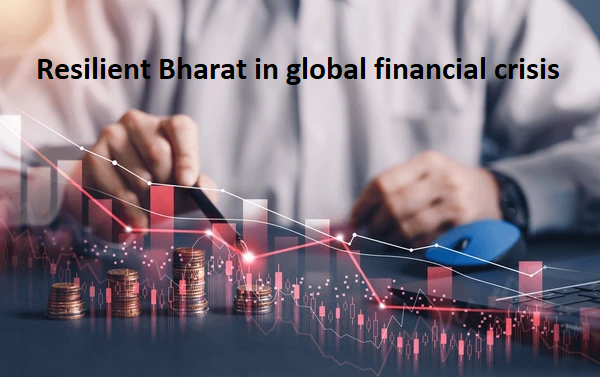
Resilient Bharat in global financial crisis
- November 15, 2024
- 0
Last year was a year of “Predictable Unpredictabilities”. The pandemic has receded. However, globally inflation seems to be sticky, while the pundits, conditioned by an easy flow of funds since the global financial crisis, had called its early phases transitory. This has affected global demand and jobs worldwide. Interest rates are high and protectionism is rearing its ugly head. Geostrategic uncertainties along the fault lines in Europe, West Asia, and the South China Sea are threatening to spread.
On the domestic front, while the recent parliamentary elections yielded a surprise verdict, the swift formation of a government has dispelled instability concerns.
Looking at the economy, India has been a bright spot with four consecutive years of 7 per cent plus growth rate. Quick action by the Reserve Bank of India (RBI) has brought core inflation towards the lower end of the band; however, food inflation is seemingly threatening. India has contributed almost 18 per cent to global growth. Consumption, the mainstay of our growth story, seems to be slowing too, though impact is currently limited and masked by a large government investment in infrastructure.
The government and RBI’s response during and after the pandemic was nimble and effective.
The Economist estimates India’s combined welfare spending at about 1.8 per cent of GDP. Going beyond this level could stall the download trajectory of the fiscal deficit and increase inflation, with limited upside in productivity.
Many policy experts advocate for the growth of manufacturing as the only solution for increasing employment and reducing the load on agriculture in rural areas.
However, the micro, small and medium enterprises (MSME) sector in India has, started to bloom and is sucking in large amounts of credit guarantee have proven very useful with a low default rate. Many of them are expected to become part of large-scale supply chains and pull in big industries as well. They would need continued government support through accessible credit and a huge emphasis on skilling.
The inevitable growth of services and MSME’s would lead to a large-scale relocation of people from rural to urban areas.
While the government has a focus on affordable housing, most of these workers generally need residences near their workplaces as they cannot afford long commutes. This would have a positive impact on allied industries, creating more jobs.
The financial sector for “Viksit Bharat” should be charactrised by frictionless operations, and that requires patience, reforms, and policy and regulatory stability.
👇 Please Note 👇
Thank you for reading our article!
If you don’t received industries updates, News & our daily articles
please Whatsapp your Wapp No. or V Card on 8278298592, your number will be added in our broadcasting list.

































































